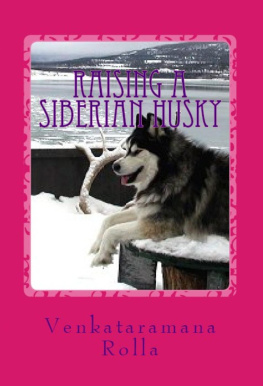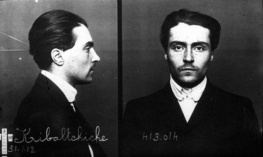| Note: | Images of the original pages are available through Internet Archive. See https://archive.org/details/fromparistopeki00meig |
Transcriber's note: Cover created by Transcriber and placed in the Public Domain.
FROM PARIS TO PEKIN OVER
SIBERIAN SNOWS.
THE MONASTERY OF TROITSA.
[Frontispiece.
FROM PARIS TO PEKIN
OVER SIBERIAN SNOWS.
A NARRATIVE OF A JOURNEY BY SLEDGE OVER THE SNOWS OF EUROPEAN
RUSSIA AND SIBERIA, BY CARAVAN THROUGH MONGOLIA,
ACROSS THE GOBI DESERT AND THE GREAT WALL,
AND BY MULE PALANQUIN THROUGH
CHINA TO PEKIN.
BY
VICTOR MEIGNAN,
EDITED FROM THE FRENCH BY
WILLIAM CONN.
With supplementary notes not contained in the original edition.
WITH A MAP AND NUMEROUS ILLUSTRATIONS FROM
SKETCHES BY THE AUTHOR AND OTHERS.
LONDON:
W. SWAN SONNENSCHEIN AND CO.,
PATERNOSTER SQUARE.
1885.
Printed by Hazell, Watson, & Viney, Limited, London and Aylesbury.
PREFACE TO THE ENGLISH EDITION.
Embarrassed readers, who delight in books of travel, whether for the recreation or the useful information they afford, are not relieved of their difficulty when the title of the work, instead of indicating the nature of the subject, only presents an enigma for them to solve. How, for instance, is the reader to gauge the nature of the contents of Voyage en Zigzag? It might mean the itinerary of some crooked course among the Alps, or, perhaps, the log-book of a yacht chopping about the Channel, or the record of anything but a straightforward journey. Again, By Land and Sea might simply be the diary of a holiday trip from London to Paris, or a rchauff of impressions of a globe-trotter, who went to see what everybody talked about that he also might talk about what he had seen. Then there are a host of others, such as Travels West, The Land of the North Windwhich one has to discover vaguely by ascertaining first where it does not blow,Loin de Paris, Dans les Nuages, On Blue Water; all of which might be strictly applicable to the metropolitan area if the water were only just a little bluer. But Voyage Autour de ma Femme is still less intelligible. Is it a book of travel at all, or only a romance, or a comdie-vaudeville? It may not be a fantaisie like Voyage Autour de ma Chambre, nor even the record of a journey necessarily performed within four walls, forthough I have not looked at the bookit may be the narrative of an unsentimental journey, in which the tourist had taken a holiday trip all around picturesque Europe and his wife, leaving her at home; or it may be a sentimental journey as touching as Sternesa kind of circular tour en petit, circumscribed by the ordinary length of the apron-string; in which event, a very subjective turn of the impressions de voyage would be evident; and consequently would not suit readers who decidedly prefer to regard what is presented from the objective side.
The reader will naturally discover from the title of this book the travellers course, but he will at the same time, no doubt, desire to know something of the character of the book.
It may gratify him to be told that essentially it is a personal narrative, that cannot fail to interest those who like in a book of travel a tale of life full of incident and adventure: it is one in which his sympathies will be awakened and sustained in following the traveller in his movements from day to day and from place to place, his imagination being vividly stirred by the illusion that the participator is, as it were, in the changing scenes and events passing before his eyes like the tableaux of a diorama. And yet it must not be supposed, because the writers chief object has been to give an interesting personal narrative, that it is deficient in useful information: far from it; but, instead of overcharging his book with minute details, he has seized the more salient features of men and things. These are presented from his own point of view as the result of intelligent observation or discriminating hearsay.
The traveller, who is evidently a most genial companion, passes lightly and rapidly over the well-known route from Paris to St. Petersburg and Moscow in the short space of thirty pages. After taking a glance at the wonders of the Kremlin and the monastery of Trotsa, probably the richest religious community in the world, with its heaps of precious pearls and various gems, he passes on to the famous mart of Nijni-Novgorod, along the frozen Oka and the Volga, through the country of the Votiaks, and across the Ural Mountains into Siberia. Posting at full gallop over the snowy way, sleeping, living altogether in fact, in his sledge (for the luxury of beds is unknown in Siberian hotels), he falls in with a series of adventures, sometimes amusing and sometimes even tragic, in his progress over that vast territory that presents so many strange races, and, in winter, so many remarkable scenes. At one time he is in imminent peril of being lost in a snowstorm on the steppe of Omsk, and at another on the frozen surface of the Baikal. He makes an excursion on the way amid the wild Kirghiz, gets a peep at the life of the Polish exiles, and at the gold miners and the people of Irkutsk in their amusements and occupations. The grand scenes of nature, particularly at this season, are all duly depicted with the emotion of one alive to the beautiful and sublime: the wonderful atmospheric effects of light at a very low temperature, the novel and changing aspects of the steppes; the startling spectacle of the frozen Angara and Lake Baikal, the grotesque aspect of the snow-capped forests, and then, later, the picturesque, verdant valleys of China. In the course of his journey through Mongolia, he enables us to get a glimpse at those strange people the Mongols, their tent life, their city of tents, their incessant prayer-turning as a chief occupation, and the fearful character of some of their ceremonies. Then, after a caravan journey of eighteen days across the trackless Desert of Gobi, he arrives at the great Wall of China, and finally at Pekin, where he contemplates its curiosities, its works of art, its people, their institutions and their daily life.
Having thus given an outline of the book and its contents for the readers guidance, I will proceed to explain why I have thought it advisable to depart from a close imitation throughout of the original, and to present, in fact, a modified version rather than a strict translation.
The style of the original, though simple and unadorned, is frequently slipshod; and the authorcontrary to many French travellers, who often make, and perhaps still oftener attempt to make, the subject of their narrative a vehicle for epigram and sparkling and spirited dictionhas evidently thought more of conveying a truthful picture to the reader, than of the mode of expression by which this could be most effectively done. In many novel and interesting descriptions, for example, the effect they are capable of producing is almost wholly lost through the want of a more just co-ordination of parts and subordination of minor details, and, occasionally, through the want of sufficient expansion, lest the reader should not have time to contemplate and realize a quick succession of fleeting images.
These, consequently, are some of the chief points I have attempted to correct; though in making the attempt, I hope I may not have exposed myself to an unpleasant suspicion, in the first place, of having assumed too much assurance in undertaking uninvited to revise the writing of another, and, in the next place, in certain







